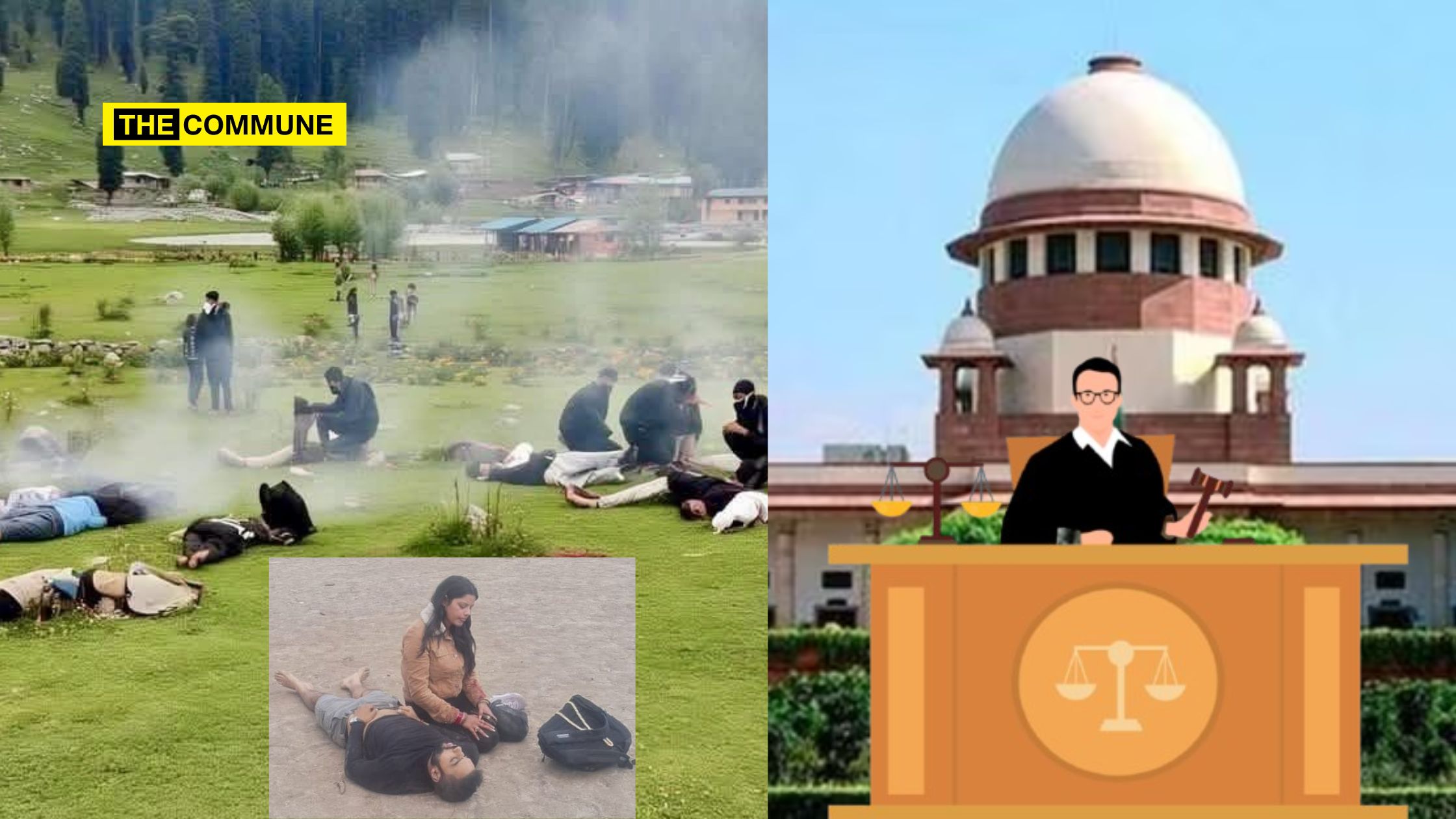
In the wake of the Pahalgam terror attack—where 27 innocent civilians, mostly tourists, were gunned down in cold blood by Islamist terrorists in the remote meadows of Bisaran—serious questions are being raised, not just about the state administration or intelligence failure, but about a judiciary that continues to overstep its mandate in sensitive matters of national security.
The attack, which occurred in the remote village of Bisaran, has shaken the nation. Eyewitness accounts and viral videos reveal the chilling modus operandi of the terrorists: victims were identified by their religion before being executed, often after having their ID cards or even clothes checked to confirm their faith. Among the victims was a man shot dead in front of his wife and child, and according to the widow, the assailant chillingly told her, “Go tell Modi,” before leaving the scene.
While the security lapse and intelligence failures demand accountability, a deeper and far more uncomfortable truth lies at the heart of this tragedy – let us explore how the judiciary is at the centre of all this.
The Judiciary’s Dangerous Symbolism
After the abrogation of Article 370—a move welcomed across the country for finally bringing Kashmir into the national fold—the government had no constitutional compulsion to rush into conducting elections. Yet, under pressure from the judiciary, which was keen to be seen as a “guardian of democracy,” the government was virtually strong-armed into holding elections in the Valley.
The Supreme Court’s decision to entertain petitions questioning the abrogation of Article 370 and to push for early elections in Jammu & Kashmir has had far-reaching implications. Despite the government’s firm stance post-2019 that normalcy and security should precede political rehabilitation, the apex court’s insistence on rushing the political process gave cover to elements that continue to fuel separatism and terror.
By setting artificial deadlines for elections and entertaining legalistic challenges to sovereign legislative decisions like the nullification of Article 370, the court shifted the focus away from security stabilization and allowed political figures with questionable loyalties back into the mainstream. This judicial activism placed the centre under undue pressure to prioritize symbolic democratic exercises over critical on-ground realities.
As a result, political operatives—some with open sympathies for anti-India ideologies—were re-legitimized. This not only emboldened subversive narratives within Kashmir but also confused the counter-terror grid, which relies on consistent policy signals from the highest levels of governance.
Why? What has an election in Kashmir ever truly achieved? Historically, it has only served to rehabilitate known separatists, turncoats, and soft-separatist political dynasties who, once elected, use taxpayer money to fuel anti-national propaganda.
Case in point: Engineer Rashid. A man with pro-Pakistani leanings who should have been behind bars for his seditious views, facing trial under UAPA, was allowed to contest elections, strut across Delhi like a VVIP, and leverage the Indian democratic system to legitimize his politics – All under the watchful eye of a judiciary that often confuses symbolism with security.
Judges do not bear the brunt of bombs. They do not confront Kalashnikovs in alpine forests. Yet, through their rulings, they impose obligations and timelines on elected governments and security agencies, often forcing them to cater to legal niceties over hard realities.
While the courts debated constitutional interpretation, terrorists prepared for their next strike. While PILs flooded courtrooms demanding elections, the security apparatus was diverted to “facilitating democracy” in regions where democracy has been repeatedly weaponized against India itself.
Judiciary Must Be Shown Its Place
The events in Pahalgam are not an aberration. They follow a pattern—Pulwama, Uri, and now this. Each time, terrorists test the limits of our patience, and each time, the Indian response is bogged down by international posturing and internal legal wrangling.
India must face a hard truth: there can be no compromise with Islamist terrorism. No symbolism, no judicial grandstanding, no electoral spectacle can substitute for hard power and clear resolve. Whether it takes a surgical response or a deeper, more permanent recalibration of how we handle Kashmir and Pakistan, the time for half-measures is over.
And the judiciary—respected as it may be—must know its place. National security is not a playground for legal theorizing. The price of such hubris is paid not in judgments, but in lives.
Subscribe to our channels on Telegram, WhatsApp, and Instagram and get the best stories of the day delivered to you personally.




